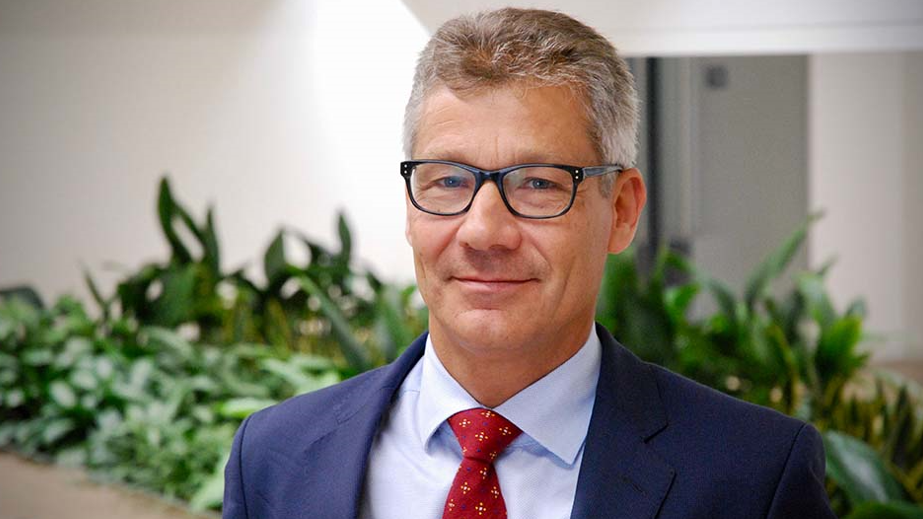Government ousts UK competition watchdog chair

Marcus Bokkerink has chaired the Competition and Markets Authority since 2022
- Published
The chair of the UK's competition watchdog has been ousted by government ministers who felt that the Competition and Markets Authority (CMA) had failed to convince them it was sufficiently focused on growth.
Government sources said that with the chancellor and business secretary at the World Economic Forum in Davos trying to drum up investment, the government wanted to send a signal that it was serious about growth.
The CMA recently held up a merger between Vodafone and Three Mobile Networks which was eventually approved.
Marcus Bokkerink, who has chaired the CMA since 2022, will be replaced on an interim basis by Doug Gurr, former boss of Amazon UK.
The CMA's chief executive Sarah Cardell and other regulators met with Chancellor Rachel Reeves last week to deliver their ideas on how to stimulate growth.
It is understood that the submission from the CMA was thought to be underwhelming.
At the time, Reeves said she wanted regulators to "tear down" red tape.
"Every regulator, no matter what sector, has a part to play by tearing down the regulatory barriers that hold back growth.
"I want to see this mission woven into the very fabric of our regulators through a cultural shift from excessively focusing on risk to helping drive growth," she said.
Last year, Prime Minister Sir Keir Starmer told a gathering of investors: "We will make sure that every regulator in this country - especially our economic and competition regulators - takes growth as seriously as this room does."
In a statement, Mr Bokkerink warned against competition authorities becoming "vulnerable to short term expediency or vested interests".
He said that his approach at the CMA was designed to promote growth through fair and effective competition by ensuring consumers and businesses had choice and "businesses large and small being free to compete, innovate and have a fair shot at succeeding based on merit...on a level playing field."
The CMA's primary responsibility is to ensure consumers are well served by effective and fair competition.
It was criticised by Microsoft's vice chair and president, Brad Smith, in 2023 after it initially blocked the tech giant's planned takeover of the gaming giant Activision Blizzard.
At the time, he said the UK was "bad for business" and that confidence in the country had been "severely shaken".
The CMA went on to approve the $69bn (£56bn) deal, which was the biggest-ever takeover in the gaming industry, after Microsoft restructured its offer.
Mr Smith later said the CMA was "tough and fair".
Commenting on the change of chair, Ms Cardell said: "The CMA has a critical role to play supporting the government's growth mission."
She thanked Mr Bokkerink for "his leadership and support over the last two years".
Mr Bokkerink was apppointed by former Conservative business secretary Kwasi Kwarteng in the role which carries a five-year term.
He was a former senior partner at Boston Consulting, one of the world's biggest managment consulting groups.
His interim replacement, Dr Gurr, worked at Amazon between 2011 and 2020, including two years as the online company's China president.
He is currently the director of the Natural History Museum in London.
Later this year, 11 people on the CMA's 33-member merger panel are due to step down.
The panel - which is appointed by the Department for Business and Trade - is made up of independent experts who make decisions about whether large deals can proceed in the UK. They can serve for up to eight years.